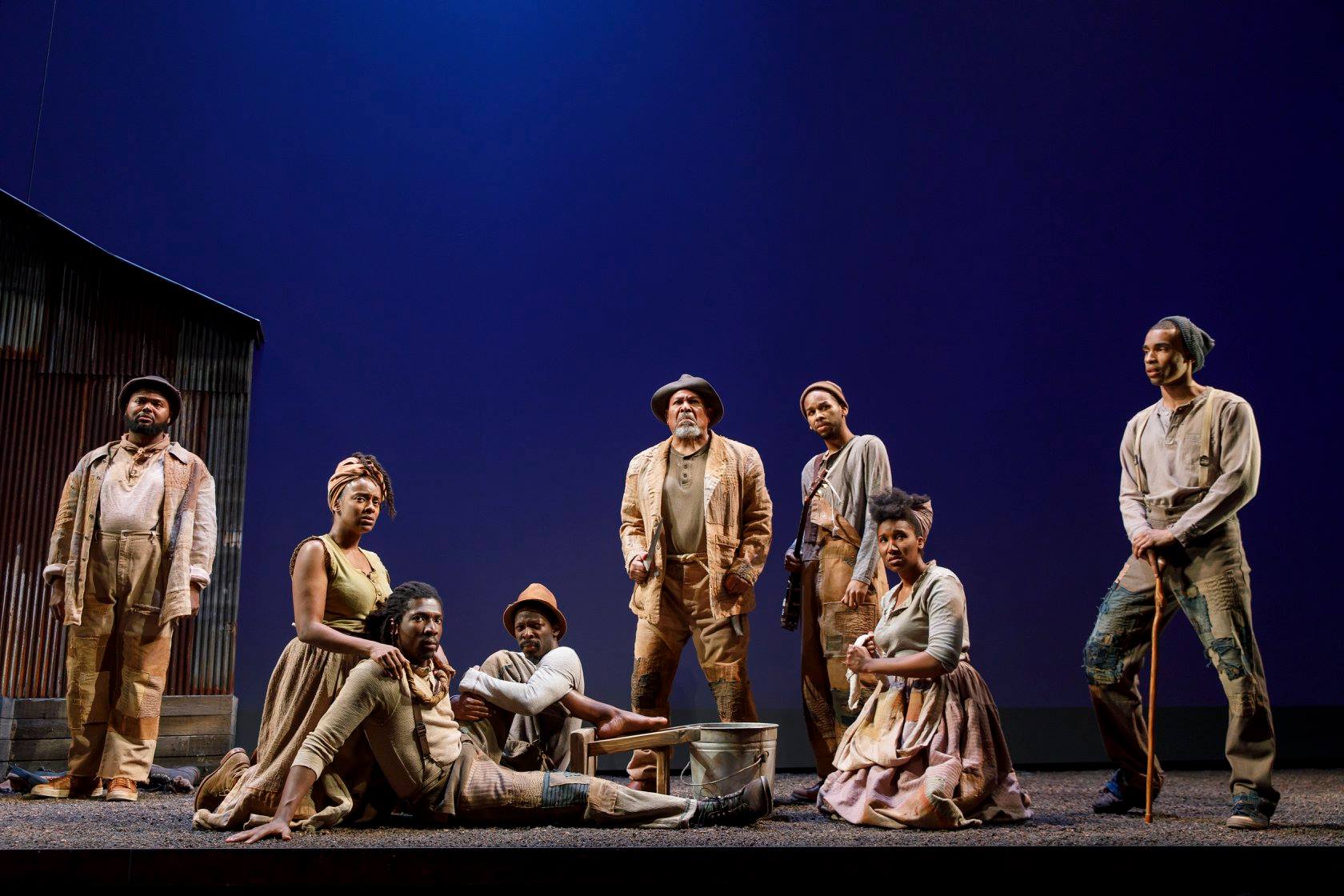
During the era of the ancient Greeks and Romans, epic poetry was memorized in full and related by word of mouth by early poets to their enraptured audiences. While this medium of storytelling has all but ceased to exist, Pulitzer Prize–winning author Suzan-Lori Parks tells a modern epic in her play “Father Comes Home From the Wars (Parts 1, 2 & 3)”.
Parks tells the story of a slave named Hero, played by James Udom DRA ’18, living in Texas during the Civil War. Throughout the performance, Hero struggles with the ideas of freedom, morality and identity as he follows his master — the Colonel, played by Dan Hiatt — into battle on the Confederate side of the war. The play contains the first three parts of what will become a 12-part epic poem that has been hailed as the “American Odyssey.”
This title is fitting, as Parks’ story is heavily inspired by Homer’s “Odyssey,” which tells the famous story of a man returning home from the Trojan War. Classical allusions abound in the production — from the use of names such as Homer, Penny and Ulysses to the amusing reference to the classical Greek chorus through Hero’s talking dog Odd-see, played by Gregory Wallace DRA ’87.
And yet, the references are simply small pieces in the narrative that Parks crafts, and they do not take away from the unique action and themes that “Father Comes Home From the Wars” contains. Spanning three hours, Parks’s magnum opus also matches the epic poets in length — and not a moment of it is dull.
Udom does a fantastic job of expressing the inner debate of Hero as he struggles with his identity and values. In each part of the play, Hero confronts a situation that forces him to choose between his own freedom and his duty to those around him. Udom’s thoughtful acting allows one to see the gears turning in Hero’s head as he attempts to come to a conclusion on how he should act. Hero is far from perfect, and Udom captures his nuances perfectly, presenting a deeply flawed character that one still cannot help but root for.
Though each part of the story illustrates a distinctly different struggle for Hero in the realm of freedom and duty, they are linked together by the Musician, played by Martin Luther McCoy, whose bluesy music elevates the dialogue from simple prose to almost verse. Though the action of the play takes place over several months, the acts progress through time, with the first scene taking place just before dawn and the last scene ending as the sun goes down. Time plays an important role in the narrative, with Hero’s fellow slaves having to wait until morning before he declares his decision on whether he will join the Colonel, and runaways waiting until dusk in order to continue their journey. In these moments, even the flow of time in the production is inexorably linked to the conflict of freedom and duty.
Adding to the complexity is Hiatt’s portrayal of the Colonel. Our initial knowledge of his character comes from the slaves themselves, who discuss the cruelties he has thrust upon them — such as whipping, or Hero’s forced amputation of the foot of another slave, Homer, played by Julian Elijah Martinez DRA ’16. However, Hiatt’s superb acting adds dimension to the Colonel’s character, and we see him not only as the cruel and selfish slave owner, but also a man who harbors true sentimental feelings for Hero. Hiatt’s impassioned portrayal of an inherently self-contradictory character is astounding and lends itself perfectly to Hero’s conflict between his duty to the Colonel and his desire for freedom. As Hero admits to the Colonel’s Union captive, Smith, played by Tom Pecinka DRA ’15, “I’m worth something, so me running off would be like stealing.”
Liz Diamond’s fluent staging and the realistic costumes of Sarah Nietfeld DRA ’18 easily immerse the audience in the story and engage them with the complex physical and psychological trials of slavery. Hero’s debate on freedom reflects not only the complex philosophical and moral question that plagues him, but also the historical wound that such a debate left behind and that still continues to leave its mark on American society today.
Father Comes Home From the Wars (Parts 1, 2 & 3) opened March 16 and will be showing at the University Theater on 222 York St. until April 7. Tickets are $25 for students.
Jake Kalodner | jake.kalodner@yale.edu







